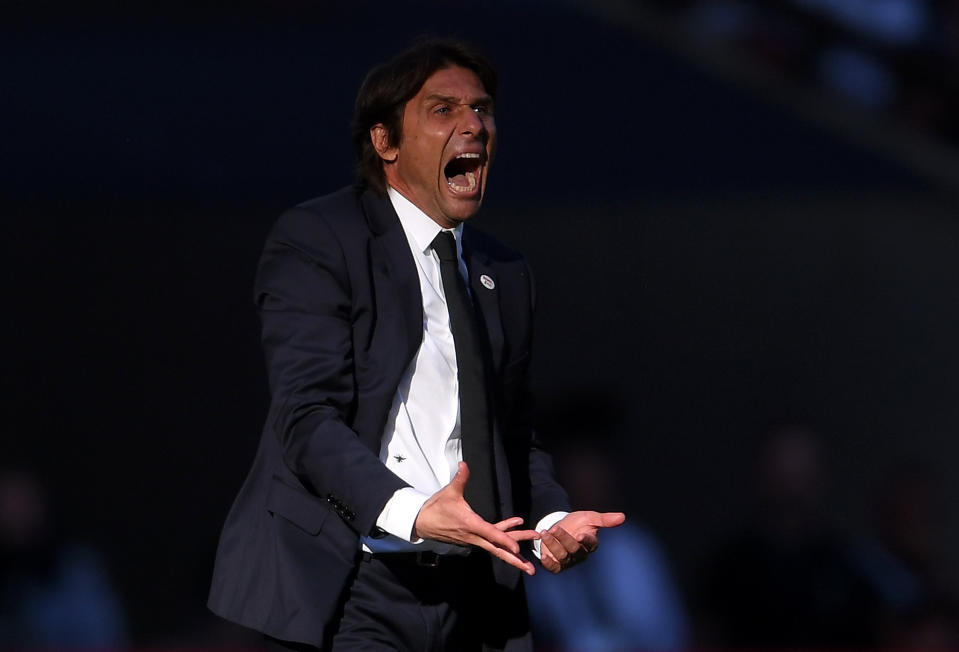Antonio Conte will reportedly sue Chelsea over firing. Does he have a case?

Former Chelsea manager Antonio Conte is planning to sue the club over the messy nature of their recent divorce, according to reports in the English and Italian media.
Conte, per the reports, will allege that Chelsea’s delaying of his firing until last week precluded him from finding another job, and therefore diminished his future earning potential.
But Conte, as part of the severance agreement, will still receive the $11.7 million due to him in accordance with the final year of his now-terminated contract. So his argument – and the legal case – seem fairly absurd.
Why Conte believes he was wronged
Conte’s complaint is that Chelsea fired him in July rather than in May. The vast majority of sackings occur in the weeks surrounding the end of a season. With dozens of jobs opening up more or less simultaneously, and with dozens of coaches on the open market, the game of managerial musical chairs flows seamlessly.
Conte’s argument is that Chelsea prevented him from participating. Had he been fired in May, he’ll presumably claim, he could have pursued the Real Madrid job when it opened, or the Italian national team job before it was handed to Roberto Mancini, or a host of others. Instead, axed in mid-July, he was left without a viable landing spot.
At the crux of the matter is that both Conte and Chelsea knew all along that the Italian would not be in charge at Stamford Bridge in 2018-19. They had rankled each other – Chelsea refusing to match its spending to Conte’s ambition, Conte publicly criticizing the club – and become incompatible. The sacking was an inevitability. And yet Chelsea waited two months. Conte, as a result, is demanding the club compensate him for the money he’ll miss out on while unemployed.
But in a way, they’re already doing that. So there are various holes in Conte’s demand.
Why Chelsea waited so long to fire Conte
Chelsea no longer wanted Conte, nor did Conte want to continue at Chelsea, and the mutuality was precisely the problem. It led to a standoff. If Chelsea sacked Conte, it was on the hook for the remainder of his contract. If Conte resigned, he forfeited those millions. Each side wanted the other to budge first. For two months, neither did. Only as preseason began and each passing day brought wasted training sessions – and only after Chelsea finalized its agreement with Conte’s replacement, Maurizio Sarri – did Chelsea finally give in.
So, Antonio, a brief question, if you’ll permit: If you were so intent on coaching in 2018-19, why didn’t you resign in May and find a new gig?
Where Conte’s likely argument breaks down
Conte was under contract at Chelsea. The club had the right to sever ties at any time, provided it compensated Conte fairly, in accordance with the original contract. Conte, likewise, had the right to negotiate his way out of the deal. Had he wanted to jump ship for Real Madrid, he could have.
But, remember: Had he done so, he’d have been letting go of $11.7 million. He essentially had a decision between getting paid to work and getting paid to not work. He chose the latter. And there’s no problem with that.
But there’s a problem if a comes back to the club wanting to get paid to not work and be compensated because he is now unable to work.
In fact, there are several problems here. It’s unclear if there is any legal merit whatsoever. Unless the contract contained unusual language, Chelsea had the same right to get out of it in July as it did in May (or, for that matter, September). It will be very difficult for Conte’s camp to argue that the timing of the decision was a vengeful act. Whatever harm it does to Conte’s career is merely an unfortunate byproduct, not grounds for legal action. And it will be very difficult to prove that Conte could have made more than $11.7 in a hypothetical next job.
Plus, the situation is as much Conte’s fault as Chelsea’s. He openly rebelled against the board while under contract. His sporadic public complaints were harmful. As The Times notes, there’s a second side to this:
For their part, Chelsea have threatened to withhold the final year of his contract due to alleged irregular conduct and repeated criticism of his employers during his second season at Stamford Bridge.
So, if you’re following along here: Conte disparaged his employers, making their professional relationship untenable. Then he refused to resign to ensure he’d lap up the rest of the money on his contract. Now he’s reportedly suing because Chelsea did eventually fire him – the outcome he had likely hoped for back in May.
The $11.7 million seems like a fair compromise. Conte, though, wants the best of both worlds: the last year of his Chelsea contract, and another job – or at least the monetary equivalent. But he can probably only have one, and by not resigning, he chose the former.
– – – – – – –
Henry Bushnell covers global soccer for Yahoo Sports. Have a tip? Question? Comment? Email him at henrydbushnell@gmail.com, or follow him on Twitter @HenryBushnell, and on Facebook.
More soccer on Yahoo Sports:
• So, the World Cup is over. What’s next in soccer?
• Winners and losers of Russia 2018
• Bushnell: The legacy of the 2018 World Cup? Equality
• Schaerlaeckens: Why Putin was the World Cup’s real winner

